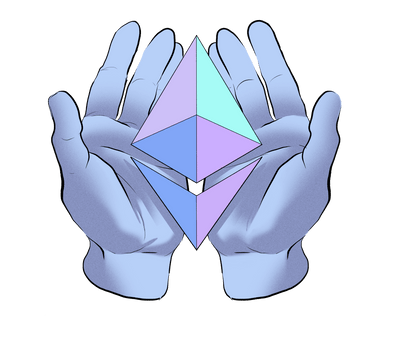What is Ether (ETH)?
Meet ether, Ethereum's cryptocurrency
Ethereum has a native cryptocurrency called ether (ETH). It is purely digital, and you can send it to anyone anywhere in the world instantly. The supply of ETH isn’t controlled by any government or company –– it is decentralized and completely transparent. New coins are created only by miners and stakers who maintain the network.
Every action on the Ethereum network requires a certain amount of computational power. This fee is paid in the form of ether. This means you need at least a small amount of ETH to use the network.

What can I do with ETH coins?
ETH can be used for a multitude of functions. One of the most prominent usages of the Ethereum technology is decentralized finance (DeFi), which opens entire areas of banking services to anybody with an internet connection. You can use your ether as collateral to take out loans or provide liquidity to earn interest on your funds.
DeFi covers a broad range of ecosystems, from blockchain games to NFT projects, lending and borrowing platforms, decentralized exchanges and more.

Who runs Ethereum?
Ethereum is not controlled by any one entity. It exists solely through the decentralized participation and cooperation of the community. Ethereum makes use of nodes (a computer with a copy of the Ethereum blockchain data) run by volunteers to replace individual servers and cloud systems owned by major internet providers and services.
These distributed nodes, run by individuals and businesses all over the world, provide resiliency to the Ethereum network infrastructure. It is therefore much less vulnerable to hacks or shutdowns. Since its launch in 2015, Ethereum has never suffered downtime. There are thousands of individual nodes upholding the Ethereum Network, making Ethereum one of the most decentralized cryptocurrencies out there, second only to bitcoin.

Last updated